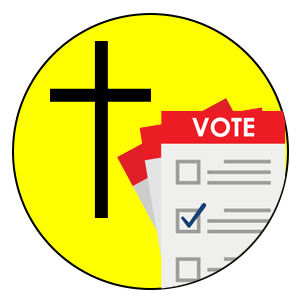A guide for Catholics in the Diocese of Erie
Why is the church interested in how I prepare to vote?
The Catechism of the Catholic Church states that the Catholic faithful have an obligation to participate in promoting the common good. While this begins first and foremost in taking charge of our personal responsibilities, Catholic citizens, the Catechism says, “should take an active part in public life.” 
The USCCB echoes the Catechism in labeling responsible citizenship a virtue and calls participation in political life a moral obligation. It points out that this obligation finds its root in the “baptismal commitment to follow Jesus Christ and to bear Christian witness in all we do.”
How exactly do we form our consciences?
One key message that has broken through the noise in the political arena is that Catholics should form their consciences before they cast their votes. But how exactly is that achieved?In 2007, the USCCB published an essential document, Forming Consciences for Faithful Citizenship, A Call to Political Responsibility from the Catholic Bishops of the United States. It has been updated several times since then, and includes a new introductory letter created specifically for the 2022 election.
While a link to the full document can be found here and elsewhere on this microsite, the bishops say their statement is designed to provide guidance for Catholics. The bishops focus on issues, not candidates, and never tell people who to vote for.
“Our purpose is to help Catholics form their consciences in accordance with God’s truth,” they write. “We recognize that the responsibility to make choices in political life rests with each individual in light of a properly formed conscience, and that participation goes well beyond casting a vote in a particular election.”
The bishops recognize we have a “dual heritage as both faithful Catholics and American citizens with rights and duties as participants in the civil order.” They urge people to use the document to help form their consciences, to contribute to respectful public dialogue and to shape their political choices in light of Catholic teaching.
